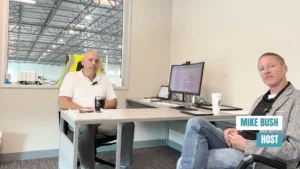The Cost of Poor Transportation Is Hitting Your Dinner Table
Transportation safety impacts everyone, even those who never leave their homes. It is a topic with implications that reach far beyond being safe on the roads or in the air. It effects the efficacy of our food and other products and can even have ripple effects on our overall quality of life.
The National Transportation Safety Board recently announced in 2019-2020 Most Wanted List of Transportation Safety Improvements. A list that began its bi-annual release in 1990, it is created by the government agency to reflect the needs of the current transportation environment.
“The 2019–2020 Most Wanted List advocates for 46 specific safety recommendations that can and should be implemented during these next two years,” NTSB Chairman Robert Sumwalt said. “It also features broad, longstanding safety issues that still threaten the traveling public.”
The broader issues of concern for 2019-2020 fall into several categories, including elimination of distractions and drug/alcohol impairment while driving, reduction of speed-related crashes, safe shipment of hazardous materials, and implementation of collision-avoidance systems in all new highway vehicles.
NTSB is talking, and car manufacturers seem to be listening.
The trends for auto manufacturers in 2019 are focused heavily in advanced technology and improved safety features. For example, the new forward-collision warning or FCW system uses sensors that scan ahead and alert the driver via visual or audio cues of any crash risks and helps drivers know when to brake, change lanes, or reduce their speed.
Similarly, blind spot warning (BSW) systems inform drivers when a vehicle is traveling within his or her blind spot. Some systems are even equipped to brake or steer the vehicle back to safety. Cruise control, a now classic feature, has been updated with sensors that adapt to keep drivers at a safe distance from the car in front of them.
While all these features are incorporated into vehicles to keep travelers safe, it is also important to understand the role of quality transportation practices in keeping food and other products safe and available for human consumption.
According to a recent Food and Business News report, “transportation issues, primarily truck transport and regulations, were cited among chief concerns for 2019 by both the American Bakers Association and the Grocery Manufacturers Association.”
The Food Safety Modernization Act (FSMA), according to the FBN report, attempts to address what has been called a “crisis’ in the food industry, one that reduces “accessibility, availability and affordability of the food, beverage and household goods that American families need.”
Influencers in the industry have pushed for and attained adjustments in important regulations, such as the Hours of Service Regulations for truck drivers, that will aid in getting food to people who need it most during times of natural disaster. The ABA is also pushing for regulations that improve consistencies in the practices of the FDA.
For the latest news, videos, and podcasts in the Transportation Industry, be sure to subscribe to our industry publication.
Follow us on social media for the latest updates in B2B!
Twitter – @TransportMKSL
Facebook – facebook.com/marketscale
LinkedIn – linkedin.com/company/marketscale








